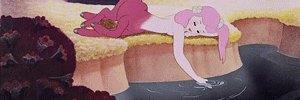>>8472
The book also talks about that striking music during the opening shot:
> At one point in pre-production, Kubrick asked Wendy Carlos about appropriate music for graves and death, and she suggested the chant commonly known from the Roman Catholic Requiem mass, the Dies Irae. One of the chant’s most famous appearances is in the final movement of Berlioz’s Symphonie Fantastique from 1830, a piece that Carlos recommended to Kubrick. In typical Kubrick fashion, it had a strong effect on him, and like Prokofiev’s score to Alexander Nevsky that he owned as a child, he played it, Carlos estimates, more than a hundred times. In that time, he forged a deep connection to the music.
https://www.youtube.com/watch?v=Dlr90NLDp-0
It's interesting that Dies Irae is frequently quoted in other scores: https://www.youtube.com/watch?v=0hL1m4hGBVY
